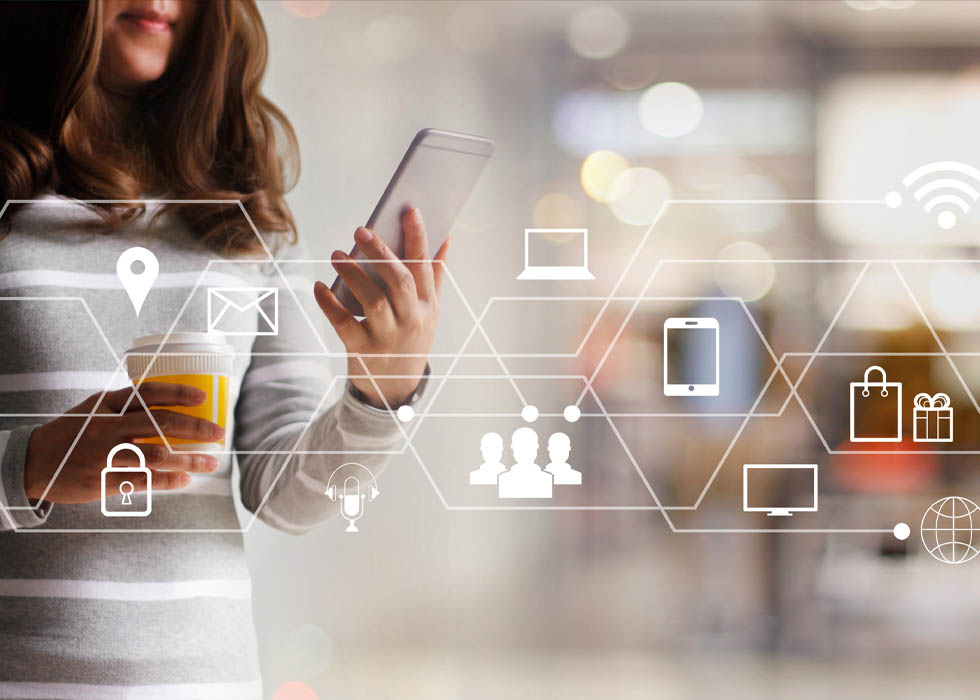Four Emerging Technologies Will Help Retailers with Post COVID Evolution
The COVID-19 pandemic hit brick-and-mortar retailers hard with a decrease in both overall in-store traffic and revenue. Some retailers were able to find the silver lining during the pandemic and adapt to an ever-changing customer need by accelerating their digital transformations and enhancing their operations at both their brick-and-mortar and online stores.
As reported by Forbes, research shows online shopping grew 44% during the pandemic; however, consumers and retailers still see the need for the physical store. Major corporations have embraced new ideas like small-format stores while a newer trend of buy online and pickup in store (BOPIS) have given consumers new options to shop. Another new trend are “dark stores”, where the retailer turns their current physical location into a local fulfillment center. Other retailers have gone in a different direction and embraced an “experience only” model. Customers can experience the product in the store and then order from the comfort of their own home.
Emerging technologies, including computer vision, digital kiosks, radio-frequency identification (RFID) and 5G have helped all these trends above evolve. These new technologies can be used by retailers to cater to their consumer and provide the best shopping experience.
Computer vision utilizes existing camera infrastructure and can help retailers solve existing and new challenges. Benefits include measuring both customer and associate engagement, and enhanced inventory tracking.
Digital kiosks play a key role for retailers that have limited showroom space. Customers can browse and visualize their purchase using this technology. Retailer benefits include:
- Customers can view all available colors and combinations they can choose from, rather than sifting through physical items.
- Cross-referencing digital engagement opportunities with in-store promotions and conversions can provide valuable insight into the success of a campaign, the strength of a product line and more.
- The ability to collect information about shopper browsing habits, what they buy or don’t buy, and which items are purchased together.
- Data to generate Draws valuable correlations between in-store traffic and orders.
RFID technology enables automatic identification and tracking of merchandise. Early on, it was used for in-store cycle counting, but today it has many more uses and can provide visibility for the complete end-to end supply chain. A few additional benefits include:
- Better demand planning and more sustainable operational efficiency for retailers.
- Track specific inventory counts, and customers can check online to see whether a store has the item in stock.
- Improves the customer experience but also reduces shrinkage and improves expense control.
5G networks are the great connector. As technology (such as some of the above mentioned) including cameras, point-of-sale devices, people counters, and digital kiosks become more prominent in retailers, 5G networks will become even more important as these technologies require being network enabled. Benefits of using it include:
- Enables greater technology usage in the store, which translates to a streamlined checkout experience, stronger inventory intelligence and, ultimately, happier customers.
- Powers many of these trends, enabling better data collection, shopper tracking, marketing analysis and more.
- Transforms the retail experience in today’s increasingly interconnected world.
The digital transformation will pave the way forward to meet the shifting needs of their customers. As the retail industry closely looks at their investments, they will continue to move further along their digital transformation journey. As we begin the recovery from the pandemic, modern technologies have made it easier for both large and small retailers to pivot quicker and provide a more well-rounded and responsive customer experience. Smart business leaders will research these trends and technologies to grow their businesses and to ultimately enhance the customer experience.
For more information, please visit Forbes.
Want more? Get a crash course in everything the audiovisual industry has to offer. This introductory course explores AV organizations, jobs and technology. Through interactive online lessons, videos and practice activities, you can take the first step toward a career full of creative challenges and exceptional experiences. This online course allows you to learn at your own pace, while testing your knowledge along the way. Access it here.






